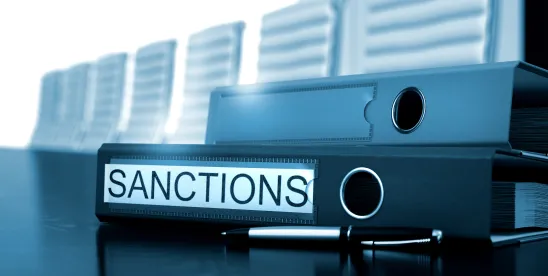On April 24, 2024, President Biden signed into law H.R. 815[1], an emergency supplemental appropriations law, that provides $95.3 billion in military aid to U.S. allies and requires the divestiture of certain social media applications.
While much of the discussion surrounding the new law focuses on the emergency foreign aid funding for Ukraine, Israel, and Taiwan, and a prohibition on the provision of certain services related to social media apps owned by “foreign adversaries,” the legislation materially changes U.S. sanctions law by extending the amount of time that regulators and prosecutors have to investigate and prosecute civil and criminal sanctions violations from five to 10 years.[2]
Scope of the Change
In particular, Section 3111 of H.R. 815 amends the International Emergency Economic Powers Act (“IEEPA”) and the Trading with the Enemy Act (“TWEA”)—the primary statutory authorities for most current U.S. sanctions—by introducing a 10-year statute of limitations (“SoL”) for both civil and criminal proceedings. This extension doubles the five-year timeframes specified in 18 U.S.C. § 3282 for criminal proceedings and 28 U.S.C. § 2462 for civil proceedings.
Because the law amends both IEEPA and TWEA, the extended SoL applies not just to economic sanctions programs administered by the Department of the Treasury’s Office of Foreign Assets Control (“OFAC”), but also to many existing and forthcoming national security programs managed and enforced by the Department of Commerce’s Bureau of Industry and Security (“BIS”) and the Department of Justice’s National Security Division (“DOJ-NSD”). However, the SoL for civil and criminal violations arising from the Export Control Reform Act (“ECRA”) and Arms Export Control Act (“AECA”) remain unaltered by the new law.
Impact of the Change
The new SoL became effective immediately upon the signing of the bill for violations that were not yet time barred. It remains to be seen how OFAC, BIS, DOJ-NSD and other administrative agencies with relevant legal authority will approach the new SoL and, in particular, whether they will seek to apply the new SoL to matters already under investigation, which may invite constitutional challenge.
The extension of the SOL dramatically increases the potential enforcement risk for banks, other financial institutions, entities and individuals, given the timeframe for past conduct that could form the basis of any penalty is now double what it was. This will make sanctions-related investigations, particularly transactional lookbacks, more lengthy and costly. Additionally, it may make requests for tolling agreements less common, which will remove at least one way in which banks and others under investigation obtain cooperation credit and a corresponding reduction in enforcement response.
Key Next Steps
As a first step, companies should consider how to address potential new risks arising from the extended SoL in their corporate compliance programs. For instance, they may need to adjust internal sanctions compliance policies, recordkeeping requirements, investigation procedures; and voluntary-self disclosure practices, to conform with the new SoL.
Moreover, it is important to bear in mind that the new SoL is not just relevant in the context of enforcement risk. It also has implications in the context of mergers and acquisitions (“M&A”) and investment activities. Specifically, it doubles the amount of due diligence that is necessary on acquisition or investment targets. Representations and warranties in transactional agreements must now consider this longer period of potential liability.
Additional Considerations
Doubling the SoL for sanctions violations reinforces the primacy of economic sanctions as a tool of U.S. foreign policy and Congress’s appetite for an increasingly aggressive enforcement posture from the agencies charged with sanctions enforcement.
Finally, the new law demonstrates that countering Russia, Iran and China continues to be a key policy priority, including by:
- requiring the identification to Congress of individuals and entities that are targeted under the Russia-related sanctions programs of the United Kingdom and the European Union but not currently the United States, with a view to greater harmonization between the regimes;
- authorizing the seizure of Russian sovereign assets for use in the reconstruction of Ukraine;
- expanding secondary sanctions to combat dealings with Iran; and
- calling for a written strategy to counter China’s role in the evasion of U.S. sanctions.
[1] H.R. 815, 118th Cong. (2023). Retrieved from https://www.congress.gov/118/bills/hr815/BILLS-118hr815enr.pdf
[2] H.R. 815, 118th Cong. (2023). Retrieved from https://www.congress.gov/118/bills/hr815/BILLS-118hr815enr.pdf






 />i
/>i

